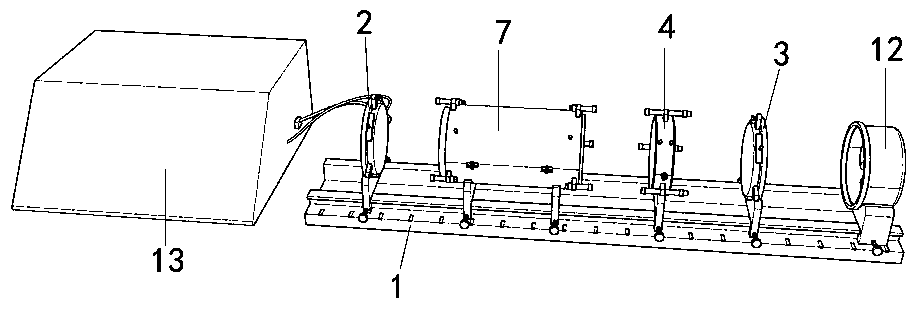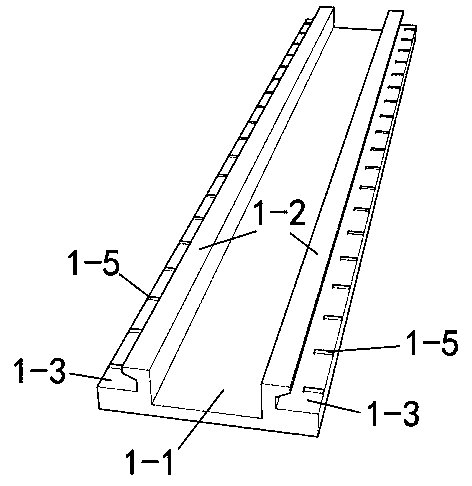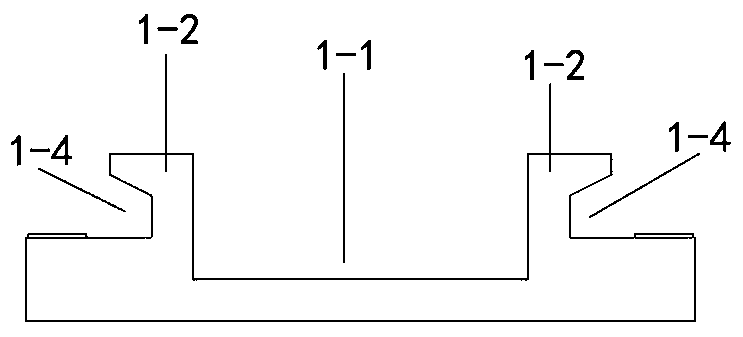An experimental instrument for measuring thermal conductivity of materials by solar energy and its measuring method
A technology of thermal conductivity and solar energy, applied in the field of physical experiment instruments, can solve the problems of compressed sample thickness, heat affecting measurement results, and inconvenient disassembly and assembly of equipment, etc.
- Summary
- Abstract
- Description
- Claims
- Application Information
AI Technical Summary
Problems solved by technology
Method used
Image
Examples
specific Embodiment
[0090] Concrete embodiment: the concrete steps of bad conductor thermal conductivity measuring method are as follows:
[0091] (1) Insert the heating plate rack 2, the bad conductor sample rack 4, the cooling plate rack 3, and the cooling fan 12 on the slide rail 1 in sequence from left to right; fasten the sliding seat on the heating plate rack 2 with the bolt 2- 5. Tighten it inward and fix it with the slide rail 1; install the heating plate 8 in the disc installation cavity 2-11 on the heating plate frame 2, and tighten it inward through the disc fastening bolt 2-6;
[0092] (2) Push the bad conductor sample rack 4 to the side of the heating tray 2, open the insulation sleeve 4-2 on the bad conductor sample rack 4 after approaching, and put the bad conductor sample 5 into the hollow circle 2 4-4 , close the thermal insulation sleeve 4-2, tighten and fix the front side interface 4-9 of the thermal insulation sleeve 4-2 by bolts; fine-tune the bad conductor sample holder 4 so...
PUM
| Property | Measurement | Unit |
|---|---|---|
| length | aaaaa | aaaaa |
| diameter | aaaaa | aaaaa |
Abstract
Description
Claims
Application Information
 Login to View More
Login to View More - R&D
- Intellectual Property
- Life Sciences
- Materials
- Tech Scout
- Unparalleled Data Quality
- Higher Quality Content
- 60% Fewer Hallucinations
Browse by: Latest US Patents, China's latest patents, Technical Efficacy Thesaurus, Application Domain, Technology Topic, Popular Technical Reports.
© 2025 PatSnap. All rights reserved.Legal|Privacy policy|Modern Slavery Act Transparency Statement|Sitemap|About US| Contact US: help@patsnap.com



